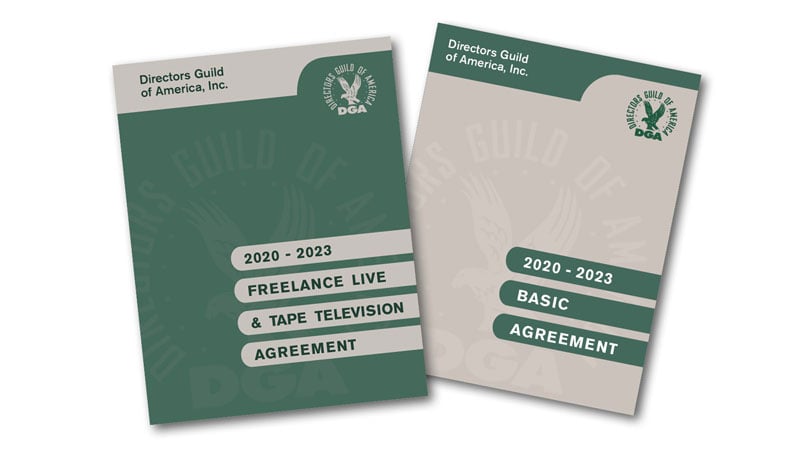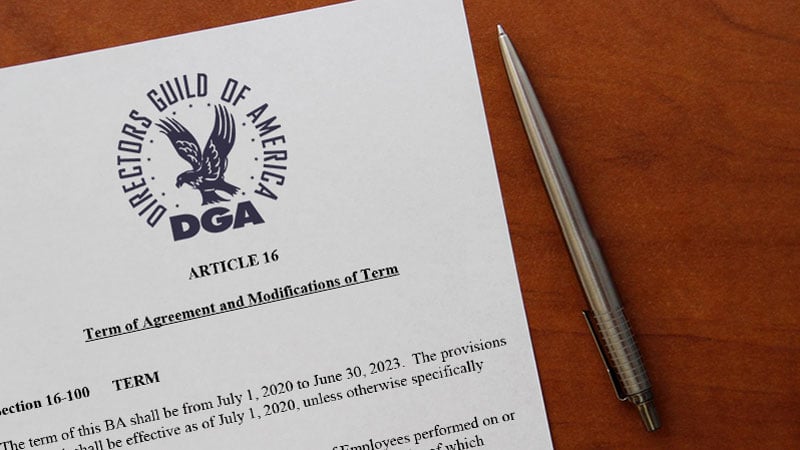When working as a Distant Hire, it’s essential to understand your rights and benefits as the employer has responsibilities for your salary, travel, meals, incidentals, and accommodations.
DEFINING “DISTANT HIRE”
A “Distant Location” is one where your employment requires you to remain away from your home and be lodged overnight. If you are working on a Distant Location, you are a “Distant Hire.”
Outlined below are the minimum compensation and benefits each Directorial team member should receive when working as a “Distant Hire.” While some fully negotiable projects may differ from the below, these guidelines establish the fundamental standards in the Basic Agreement and FLTTA available for all members.
Please Note: These rules do not apply to commercials. For more information please contact Commercials@dga.org.
DISTANT HIRE SALARY
DIRECTOR
- While on distant location, any worked 6th days or 7th days in which you travel, or scout are paid at your normal pro-rata rate of pay. Additional premium pay is due on work performed on the 7th day.
- Directors receiving more than three hundred percent (300%) of minimum compensation may agree to waive additional pay for travel.
AD/UPMs
- While on Distant Location, your minimum weekly salary is higher than the “Studio” (aka Local Hire) rate, because you are required to be paid all 7 days of the week spent on location instead of the standard 5-day Studio week.
- Your pro-rated daily rate is the same for both: the Distant weekly rate / 7 = the Studio weekly rate / 5.
- Work on the 6th day is already included in your weekly rate. If you work on the 7th day, you are entitled to additional premium pay.
AD/SMs
- AD/SMs receive a Distant Location Fee of $60 per day while on Distant Location, including travel and idle days.
- AD/SMs must be paid for all days on distant location, whether worked or not. AD/SMs employed on a weekly rate receive premium pay for working on a 6th or 7th day.
MEALS
While on Distant Location, the employer is responsible for providing meals, either by:
- providing you with actual meals,
- providing a per diem, or
- arranging for reimbursement of meals purchased
The Basic Agreement states that meals shall be “first class” and the Guild therefore expects DGA employees to receive no less than other union agreements require. FLTTA amounts may vary based on region.
TRAVEL
- Travel to/from Distant Location: You must be provided travel at the beginning and end of your employment. You are entitled to Business Class travel except when flights are less than 1,000 miles and non-stop from departure point to final destination or flights between Los Angeles and Vancouver which may be in Coach Class. When traveling Coach, the BA & FLTTA require Elevated Coach Class where available (e.g., extended leg room, economy plus).
- Baggage fees and in-flight meals in coach are subject to reimbursement by the employer upon delivery of receipts/vouchers.
- The employer is responsible for providing means of transportation while you’re on Distant Location, which may be in the form of production-provided transportation, or arrangements to reimburse you for the cost of your transportation (such as a rental car or Uber/Lyft rides).
ACCOMMODATIONS
The employer is responsible for providing “first class” or “best obtainable class” accommodations.
What may be considered to meet “first” or “best obtainable” class standards can vary in different areas and may be evaluated on a case-by-case basis, however, being required to share rooms with other crew is not considered acceptable.
The employer can meet their accommodation obligations either:
- Directly, by arranging and paying for your hotel or other sufficient accommodations, or
- Indirectly, by providing you a housing allowance sufficient to obtain first class accommodations in the area where work is being performed.
If the employer offers to provide housing indirectly (e.g. a monthly allowance), first and foremost, you should have a clear understanding of the amount you are being offered for housing to gauge whether it is sufficient. Here are some things to keep in mind when evaluating this:
- Your monies for housing alone must be identified, ideally at the point of hiring and in your Deal Memo.
- If you are being offered an “all in” monthly allowance, the amount must be sufficient to cover your accommodations and meals (and incidentals if you are an AD or UPM); in many cases this amount may be insufficient.
- To confirm the housing allowance portion of an “all in” amount is sufficient, you must deduct the monthly totals for per diem (and incidentals if you are an AD or UPM). What is left must be sufficient to cover your housing.
For example, if your “all in” amount is $5000 per month, it may break down as follows:
Monthly Total = $5,000
Per Diem ($70* X 31 days) − $2,170
$ for Housing $2,830
*FLTTA per diem amounts may vary.
Or, if you are an AD or UPM getting $5000 per month, meant to cover housing, per diem, and incidentals, your monies for housing alone may break down as follows:
Monthly Total = $5,000
Per Diem ($70 X 31 days) − $2,170
Incidentals ($24 X 31 days) − $744
$ for Housing $2,086
Your monies for housing alone must be sufficient to cover short-term, furnished housing in the area.
If you are offered or are receiving less than what’s sufficient for housing:
- Ask for more and be prepared to provide info on the actual housing costs you’re encountering.
- Ask for assistance in finding and arranging for sufficient housing that fits within that allowance.
- Ask the employer to agree to assume responsibility for the length of your lease if the only way to stay within the budget is to commit to a multi-month lease.
- Know that if you are terminated, the employer may be responsible for taking over a lease or otherwise assisting in paying out a housing contract if the employer did not provide enough for sufficient month-to-month housing.
INCIDENTALS
DIRECTOR
- Employers will further reimburse Directors for reasonable incidental expenses upon delivery of receipts/vouchers.
AD/UPMs
- While on Distant Location, the employer is responsible for providing an incidental allowance, which is currently $24 per day.
If you have issues with obtaining any of these minimum conditions:
Contact your Field Rep or the Contracts Department at contracts@dga.org or (310) 289-2010.
Understanding and asserting these rights helps maintain the integrity of your creative process and ensures a collaborative, respectful production environment. As with all contract changes, these rights are only as effective as they are enforced: The Guild and your fellow members need you to do your part by standing firm with the contract’s requirements and to asserting your rights when necessary. If there are any questions or concerns or you wish to learn more, please contact the DGA Contracts Department at 310-289-2010 or Contracts@dga.org.
Want to help other DGA members learn more about their rights and contracts? Join the Outreach Team. To find out more about the Outreach Team, please email outreachteam@dga.org

















